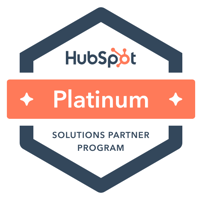But what are some ways that you can incorporate automation into your business? Let's talk about the 5 big ones in the following information. 
5 Important Ways You Should Know About Automation
1. Automating your sales activities
The power of sales automation is that it can free up your reps to focus on mission-critical tasks, instead of using precious time and energy on repetitive, "housekeeping"-type activities. Sales automation, when implemented properly, can help your team manage their pipelines more effectively, and increase conversion rates between each stage of the funnel.
There are several ways to incorporate automation into your sales workflow. If you already have a CRM system in place, odds are it comes with built-in automation tools and functionalities. Some examples of these may include:
- Automatic log entries for each interaction between a sales rep and a customer
- The ability to set automated alerts and reminders (e.g., meeting appointments, follow-up calls, etc.)
- A predictive lead scoring model to filter out high-value leads from those with low potential
Whatever the case may be with your particular CRM, it's a good place to start in terms of sales automation. Of course, you can also incorporate more automation into your workflow by adding other apps and tools to your basic CRM ecosystem.
2. Automating your e-commerce tasks
If you run an e-commerce store, then you are probably well aware of the power of automation. Automated e-commerce platforms and tools enable business owners to advertise, sell, and even fulfill product orders without having to lift a finger. If customer support is needed, automated chat-bots can serve as "front line" service reps to answer common questions and direct users to the appropriate department.
There are several kinds of e-commerce automation, including:
- Purchase transactions through an online "shopfront" (think Shopify or WooCommerce)
- Abandoned cart notifications for customers
- Saved cart items for returning customers
- Product recommendations based on each user's unique purchase history
- Review management (e.g., requesting a customer review post-sale)
- Payment processing via vendors like PayPal and Stripe
With a little upfront work, it's relatively easy to set up a partially or fully-automated e-commerce store, either as a standalone business or as an extension of your core brand. If you haven't already explored this option, now may be the perfect time to do so.
3. Automating your marketing tactics
Developing a winning marketing strategy requires creativity, vision, and careful planning - and no machine is capable of such things. However, implementing your marketing tactics is quite another matter. You can relegate many repetitive tasks to the world of computers, and free up your marketing team to focus on activities that require the human element.
What are some ways that you can automate your marketing tactics? While this list is by no means comprehensive (not even close!), here are some ideas for customer-facing automation:
- Automated SMS (text) messages
- The gradual unlocking of course content for enrollees
- Automatic scheduling and posting of social media messages
- Automated marketing emails (more on this later!)
And here are some for internal automation:
- A lead scoring and qualification system based on machine learning (ML) and data-driven analytics
- "Bridging the gap" between marketing and sales by means of automated shared updates and other communications
- Syncing qualified leads between apps and platforms as needed
4. Automating your email marketing
Email marketing is the classic use case for automation. In fact, it may have been the first thing that came to your mind when you began reading this article. Automated email marketing is highly popular, accessible, and effective - and it can be customized to fit the needs of just about any business.
Several CRM platforms have email automation capabilities; that's not to mention the variety of dedicated email marketing platforms on the market today. Whether you're using HubSpot or Mailchimp (or both!), you can explore email automation options such as:
- Emails sent according to specific triggers (customer sign-ups, product purchases, content downloads, etc.)
- Email sequences sent according to specific triggers
- The delivery of requested content after a customer fills out a lead-capture form
- Email drip campaigns that deliver content to prospects and/or subscribers at regular intervals
- Personalized templates that are auto-populated from segmented customer data
- A/B testing capabilities for content performance
There's a low entry barrier to email automation. However, this may be a good place to start if you're just beginning to explore your automation options. Look at the built-in automation capabilities that your current CRM or email marketing platform contains. Think about how you could leverage those capabilities to further your marketing plan. If you don't yet have an email marketing tool, research the available platforms with a focus on how they can help you grow your list of contacts, and then nurture your leads throughout their buyer's journey.
5. Automating your data
Most humans aren't especially gifted at managing a large quantity of data. It's easy to let key data points slip between the cracks, or fail to spot emerging trends during manual analysis.
Here again, automation tools can help. You can leverage them to automate your data in the following ways:
- Syncing contact data between apps, instead of manually entering them into each system
- Automatically merging or deleting duplicate data fields
- Consolidating customer data within your CRM
- Combining data from several apps into one dashboard (which is great for reporting purposes)

In summary, there are countless ways to automate aspects of your business process. What exactly you decide to automate is up to you. However, when automation is done right, it yields significant benefits to the company in question.
If you'd like to learn more about how to effectively incorporate automation into your business, reach out to our team of experts at OverGo Studio today for a free consultation. We'd be happy to answer any questions you have!
Take advantage of our free Hubspot CRM Configuration to start modernizing your sales process. This is a limited-time offer where we will design a sales pipeline specifically for your business. Start generating more revenue and improve your close rates by building your first high-performing sales pipeline on HubSpot at no cost. Simply schedule a discovery session with our team of HubSpot experts.


